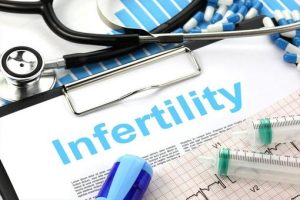 Last February, in vitro fertilization (IVF) made headlines once again after President Trump issued an executive order entitled, “Expanding Access to In Vitro Fertilization” (IVF), in which he stated, “My Administration recognizes the importance of family formation, and as a Nation, our public policy must make it easier for loving and longing mothers and fathers to have children.” It calls to “aggressively reduc[e] out-of-pocket and health plan costs for IVF treatment.” While the intention to provide support for couples facing infertility is commendable, the promotion of IVF as a solution can inadvertently endorse practices that conflict with the Church’s understanding of human dignity, in addition to creating serious ethical issues that surround the processes typically involved in IVF.
Last February, in vitro fertilization (IVF) made headlines once again after President Trump issued an executive order entitled, “Expanding Access to In Vitro Fertilization” (IVF), in which he stated, “My Administration recognizes the importance of family formation, and as a Nation, our public policy must make it easier for loving and longing mothers and fathers to have children.” It calls to “aggressively reduc[e] out-of-pocket and health plan costs for IVF treatment.” While the intention to provide support for couples facing infertility is commendable, the promotion of IVF as a solution can inadvertently endorse practices that conflict with the Church’s understanding of human dignity, in addition to creating serious ethical issues that surround the processes typically involved in IVF.
Bishop Daniel Thomas, chairman of the USCCB Committee on Pro-Life Activities, quickly responded with a quote that cuts to the first point on human dignity: “As pastors, we see the suffering of so many couples experiencing infertility and know their deep desire to have children is both good and admirable; yet the Administration’s push for IVF, which ends countless human lives and treats persons like property, cannot be the answer.” The Church views children as gifts from God, and as human beings created in the image and likeness of God. IVF treats children as products to be manufactured, that all adults have a “right” to have. It takes procreation out of the arms of parents, and gives it to an industry that instrumentalizes sexuality and objectifies children. This commodification of human life simply undermines the inherent dignity of the child and the sacred nature of parenthood that all children deserve.
While the first point is extremely important, it is perhaps easier to make the point of so many ethical issues that stem from the IVF process. Since it is typically deemed too costly and time consuming to create and implant one embryo at a time, in addition to being unethical for a human mother to try to carry too many babies to term, IVF involves the creation of multiple embryos, most of which are then discarded or frozen. Many are even discarded selectively based on what the parents want. Even if those selective criteria are based on which embryo is the “healthiest” and most likely to survive, it still raises serious ethical questions about the value and dignity of all life, no matter how healthy or what the disability is. Human beings should not be discarded based on any set of criteria, nor should they be frozen indefinitely or turned over to medical research without ever having had a chance at life. The Church firmly opposes any action that treats human beings as mere means to an end, advocating instead for a culture that cherishes and protects all life.
Rather than promoting IVF with all its ethical issues, the Church promotes medical interventions that seek to restore natural reproductive processes. Things such as low-sperm count, inability to ovulate and other problems can often be restored or helped through methods such as NaPro Technology, FEMM (Fertility Education and Medical Management) and Neo-Fertility. In the event that a couple cannot achieve fertility for whatever reason, adoption and fostering should be encouraged and supported as viable solutions. By promoting these options, society can uphold the values of compassion, respect for life, and the sanctity of marriage.
While the desire to assist couples struggling with infertility is noble, the Catholic Church’s teachings on IVF remind us of the importance of upholding the sanctity of life and the dignity of procreation. As discussions around reproductive technologies continue, it is crucial to consider the moral implications of our choices and strive for solutions that align with the values of love, respect, and human dignity.
